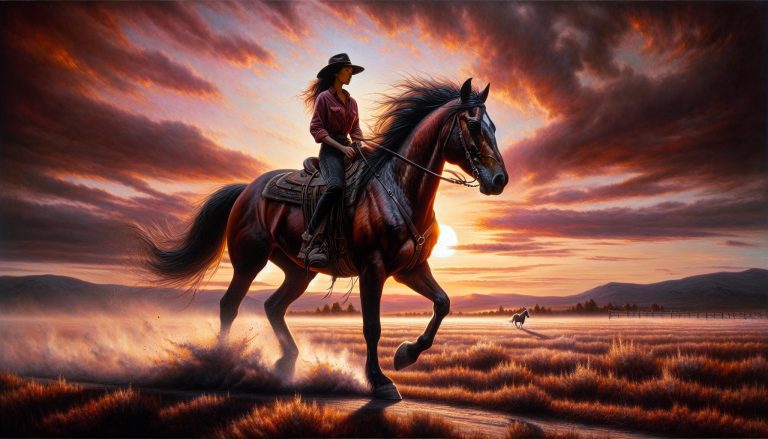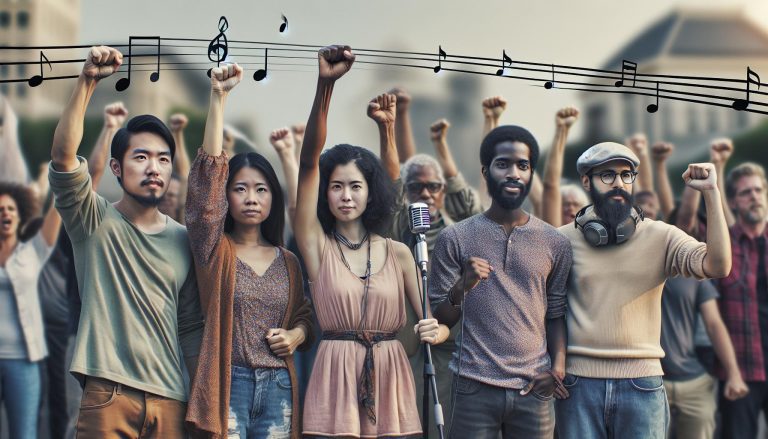Top Black Inspirational Songs Fueling Hope & Unity
Music has always been a powerful tool for empowerment and inspiration. Black inspirational songs, in particular, carry a rich legacy of stirring the soul and igniting change. They’re not just melodies; they’re anthems that resonate with the struggles, triumphs, and enduring spirit of the Black community.
From gospel hymns to hip-hop beats, these songs have provided a soundtrack to movements and a voice to the voiceless. They’re the tunes you turn to when you need a lift, a nudge to keep pushing forward, or a reminder of your own strength and resilience.
Jump into the rhythms and lyrics that have shaped generations and continue to inspire today. Whether you’re looking for motivation, healing, or a connection to a greater cause, black inspirational songs are a dynamic force that speaks to the heart and soul.
The Power of Black Inspirational Songs
Black inspirational songs are more than just melodies and lyrics; they’re a force for change and a beacon of hope. Anyone who’s listened to the anthems of the Civil Rights era knows the deep-rooted power these songs possess. But what exactly makes them so potent?
One key element is their ability to capture the collective sentiment of a community. These songs reflect the life experiences of Black individuals and stand as a testament to both hardship and triumph. They are celebrations of culture, strength, and resilience.
Now consider the rhythm and blues genre, which birthed countless inspirational tracks. It’s hard not to tap your feet or nod along to the beats. This isn’t just a feel-good reaction; it’s your body synchronizing with a story of perseverance and courage. These beats carry tales from one generation to the next, ensuring that the lessons and legacies are never forgotten.
It’s also about the artists themselves. When you hear Alicia Keys or John Legend hit those notes just right, it’s more than music to your ears; it’s a rallying call. These songs often feel like personal messages delivered straight from the heart of someone who’s walked a hard road but kept going.
Inspirational songs within the Black community also serve as educational tools. Through them, you’ll learn about heroes and sheroes, about movements that have shaped the world and about dreams that expand beyond the night into broad daylight.
Also, the lyrics often offer a source of comfort. They’re like a warm embrace when you’re feeling down or a word of encouragement when you’re trying to keep pushing forward. You’re not just listening to a song; you’re engaging in a conversation about hope and the indomitable human spirit.
Now let’s not overlook the impact of gospel music. The blend of powerful vocals and messages of faith can uplift anyone’s spirit. Gospel songs have transcended church walls and become a source of universal hope and strength, making their mark in the world of black inspirational music.
Each song is a piece of a larger narrative that continues to inspire and empower people across the globe. They remind us that through unity and music, voices can be heard, hearts can be touched, and change can be ignited.
The Legacy of Black Inspirational Songs
Black inspirational songs have had a profound impact on music and culture that transcends generations. The legacy they’ve created not only reflects triumphs and struggles but also fuels the continued fight for equality and justice. These songs carry forward the stories that might otherwise be forgotten, ensuring that the voices of the past remain loud and present in today’s conversations.
Cultural Significance and Influence
You don’t have to look far to see the cultural footprint of black inspirational music. It has profoundly influenced genres across the board, from hip-hop to jazz, and has shaped modern music in significant ways. These songs remind listeners of the powerful history of Black culture and the ongoing contributions to the arts and society.
- Heritage celebration
- Soundtrack to movements
- Influence on contemporary genres
Education through Melody
Black inspirational songs serve as history lessons set to rhythm. Artists often use their lyrics to highlight important figures and events that have shaped the community. Through their music, they’ve introduced listeners to civil rights leaders, cultural icons, and moments that define the fight for equality.
- Civil rights chronicle
- Heroes’ stories
- A reflection on past and present
Beyond Borders
The reach of these songs goes beyond the confines of nation and community. They’ve found their way into hearts and homes across the globe. The universal themes of hope, resilience, and the pursuit of freedom resonate with a wide audience, making these songs ambassadors of the Black experience to the world.
- Global impact
- Universal themes
- Sharing the Black experience
Not only are black inspirational songs a source of entertainment, they’ve become a beacon for those needing motivation and a sense of kinship. Their lyrics offer support, and their melodies bind communities, signifying that the struggle, though personal, is also a shared one. Each chord and verse is an echo from the past, ringing out to shape the future, and serving as a reminder of their unwavering relevance.
From Gospel Hymns to Hip-Hop Beats
The evolution of black inspirational songs has been a dynamic journey from soul-stirring gospel hymns to the powerful punch of hip-hop beats. Gospel music, with its rich harmonies and stirring lyrics, laid the foundation for what would become a diverse array of inspirational sounds.
In the early days, gospel hymns were the heart of community gatherings. They provided strength and solace, offering a melodic form of hope. As you explore these tunes, you’ll notice they’ve left a mark on many genres. Let’s look at a few key shifts:
- Transition from gospel to R&B: This marked the incorporation of more rhythm and bluesy vibes; think Sam Cooke.
- Blending with soul music: Artists like Aretha Franklin took gospel to new heights, adding a soulful flair.
- Emergence of funk and disco: Both borrowed heavily from earlier black music, shaping a new kind of foot-tapping inspiration.
Now flash forward, and hip-hop becomes the new frontier. This genre, emerging from the streets of New York in the 1970s, carried the same spirit of its predecessors into modern times. Hip-hop lyrics often reflect on challenges and triumphs similar to those found in gospel hymns. Yet, hip-hop beats give these stories a fresh, raw backdrop.
Notable factors in hip-hop’s inspirational tunes include:
- Storytelling that reflects personal and social struggles
- Beats and rhythms that stick with you long after the song is over
- A fierce sense of community pride and perseverance
Black inspirational songs have always done more than just entertain. They’re a shared experience, a spoken history, and a persistent voice in the fight for equality. Whether carried by the smooth flow of R&B or the bold swag of hip-hop, they continue to inspire and unite people across the globe. By looking at the music of today, you’ll find the echoes of gospel hymns and the cadence of early blues. Every beat, every bar tells a story, your story, woven through history and melody.
Providing a Soundtrack to Movements
Black inspirational songs have long stood as powerful anthems for social and political movements. From the Civil Rights era to modern-day protests, these songs give voice to the hopes, pains, and dreams of generations fighting for change.
During the Civil Rights Movement, anthems like “We Shall Overcome” and “A Change Is Gonna Come” became rallying cries for equality and justice. The soulful lyrics and melodies captured the spirit of the times, uniting people as they marched and demonstrated for their rights.
In the 1970s and 1980s, funk and soul tracks didn’t just get people moving on the dance floor—they also carried messages of empowerment and resistance. Artists like Marvin Gaye and Curtis Mayfield used their music to address issues like poverty, urban plight, and the need for peace. Their bold lyrics ensured these songs were heard loud and clear during protests and beyond.
Key Moments Fueled by Music:
- Civil Rights marches in the 1960s
- Anti-apartheid rallies in the 1980s
- Black Lives Matter protests in the 21st century
The tradition continues with hip-hop, which has become a dominant force for commentary on social justice issues. Rappers and hip-hop artists craft verses that confront police brutality, systemic racism, and inequality. Their beats keep the energy high while the stories within their rhymes resonate with people who face these challenges every day.
It’s clear that black inspirational music is much more than just tunes to enjoy. These songs serve as the heartbeat of movements, chronicling the struggles and triumphs of those who strive for a better world. Each track tells a story, each lyric sheds light on truths that are often overlooked, and together, they create a soundtrack that inspires action and solidarity.
Whether you’re listening to the soul-stirring hymns of Mahalia Jackson or the hard-hitting rhymes of Kendrick Lamar, you’re part of a tradition that goes beyond mere entertainment. These artists and their songs are woven into the fabric of social change, acting as catalysts for activism and hope. Their music doesn’t just reflect the times—it propels them forward.
Inspiration, Healing, and Connection
Black inspirational music is a testament to the enduring spirit of hope and resilience that has defined the struggle for justice and equality. It’s not just tunes and lyrics, but a rallying cry that unites communities and heals the soul.
When you’re feeling down or your path seems clouded with challenges, it’s often these powerful songs that can light your way. They’re your personal anthem for overcoming life’s hurdles and for banding together for a common cause.
Songs like “Lift Every Voice and Sing” and “We Shall Overcome” have become synonymous with strength and empowerment and resonate deeply with the spirit of unity. They serve as a reminder that you’re not alone in your struggle and that there’s a shared experience that binds individuals together.
The ripple effect of music as a tool for healing is profound. Research shows that listening to music can significantly reduce stress and anxiety. It can also improve your mood, making it easier to tackle the day with a positive mindset. In times of social upheaval, these songs act as a balm, providing comfort to those who feel marginalized or downtrodden.
Connecting through music goes beyond mere lyrics; it’s about sharing experiences and emotions that may otherwise be difficult to express. Through the powerful beat of a drum or the soft hum of a melody, barriers are broken and a sense of common humanity is forged.
- Music is a language that transcends words – it’s about feeling and understanding.
- These songs give a voice to stories that might not be heard elsewhere.
- They bridge gaps between different ages and backgrounds, fostering a diverse but united front.
For young people, especially, hip-hop has become a tool for education on social matters. Artists like Kendrick Lamar and J. Cole use their platform to shine a light on societal issues, influencing a generation to stand up and make a difference.
As the rhythm and poetry of hip-hop permeate through our lives, they create a soundtrack for change, motivating and inspiring action. Whether it’s marching in the streets or sparking conversations in living rooms, these songs are ever-present, fueling the fire of progress and planting the seeds of hope for a brighter future.
Conclusion
As you’ve seen, black inspirational music isn’t just a source of entertainment; it’s a beacon of hope and a catalyst for change. It’s a genre that carries the weight of history while propelling us toward a more equitable future. Whether you’re seeking solace, inspiration, or a spark to ignite your activism, these songs offer a timeless soundtrack for perseverance and unity. Remember, every time you hit play, you’re not just enjoying a melody—you’re part of a larger chorus calling for progress and celebrating resilience. Keep listening, keep learning, and let the music move you to action.







